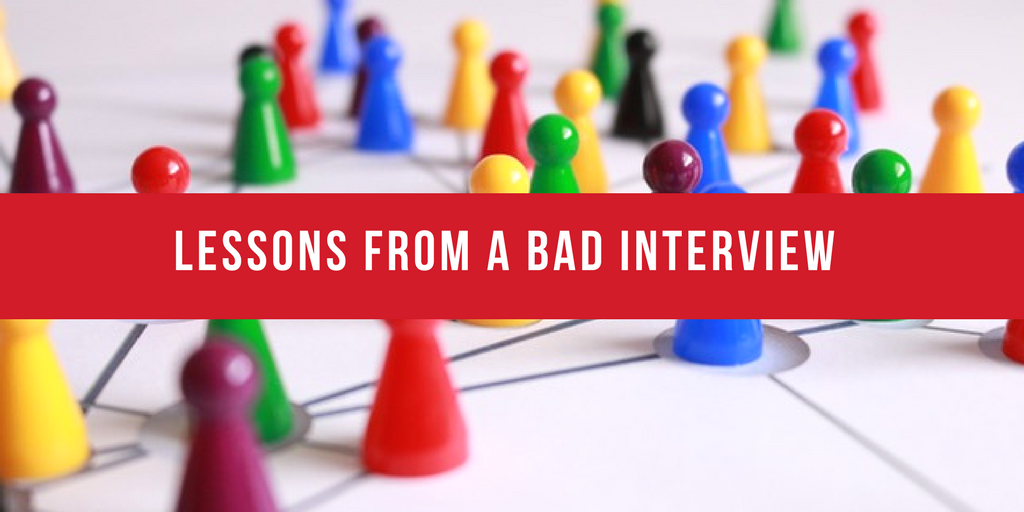;)
5 Lessons You Can Learn From A Bad Interview
| July 11, 2017| InterviewsNot every interview goes exactly as planned. Ask anyone and they’ll likely have a story about how they went on an interview that totally flopped. Similar to any other skill, job interviews have a learning curve. The first few might be far from perfect, but the more practice you have under your belt the more you’ll be able to anticipate how to be successful for this important part of the job seeking process.
It’s important not to view bad interviews as failures but as learning opportunities. Instead of beating yourself up over what went wrong, take another look at what happened and how you can improve for the future. Below are some lessons to learn
1) Preparation is Everything
There’s nothing quite as terrible as being asked a question that totally blindsides you. We’ve all been there. Whether it’s about your qualifications, past job responsibilities, how you would handle a specific situation, etc., being under prepared is a sure-fire way to leave employers unimpressed.
To avoid feeling like a deer-in-the-headlights, take time to research the company. Reexamine the questions you struggled to answer in the past and formulate a game plan.. Questions such as, “Tell me about your strengths and weaknesses” are often recycled, so it’s probable you will encounter the same question again.
2) Proofread
Nothing screams unprofessional like a resume with typos or incorrect information. And once you’re in an interview, and a hiring manager has your resume in their hands, there’s nothing you can do to fix it. Imagine this scenario:
Employer: “I see you worked as a Manager at X company from 2004 until 2015. Why did you leave a position you had for such a long period of time?””
Candidate: “Oh, um… that’s actually a typo. I only worked there until 2005.”
Typos can lead to awkward situations and diminish your qualifications in the eyes of an employer. If your resume boasts that you have excellent attention to detail, but there are several errors, your credibility will take a major hit. Before submitting a resume have more than one person look it over. They might find something you missed and can save you a world of embarrassment.
3) Be Yourself
Sometimes we’re guilty of telling people what we think they want to hear. While it’s tempting to do this during a job interview, it’s also important to be authentic. Employers don’t expect you to be a robot, living and breathing work every single second of your life. Let them get to know your personality while still showing you can be an asset to their team. It could be your sense of humor that stands out in an employer’s mind, and what ends up landing you the job. As you gain interview experience you’ll become more comfortable allowing your personality to shine through.
4) Sometimes It’s Not Meant To Be
There will be times where you felt like you did everything right and yet you still didn’t get the job offer. Don’t let these moments drag you down. No, it’s not fair that the job you felt you’d be perfect for went to someone else. But just because you did everything right and didn’t land this position, doesn’t mean you won’t land the next one. You have to recognize that some opportunities are simply not meant to be and you’ll find your way to the right one in due time. Perseverance is key.
5) Stay Positive
It’s easy to get lost in the negativity of rejection. When searching for a job it’s essential to keep your head above water and focus on the positives. Did you totally nail that surprise question they threw at you? Celebrate small victories along the way. Then when you finally land that coveted opportunity, celebrate even harder because job hunting is a tiring process, so you’ll deserve it!
